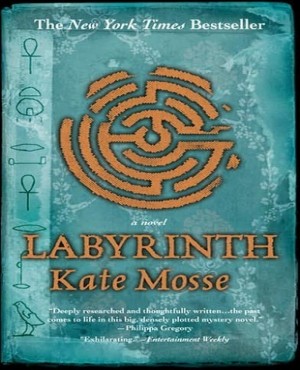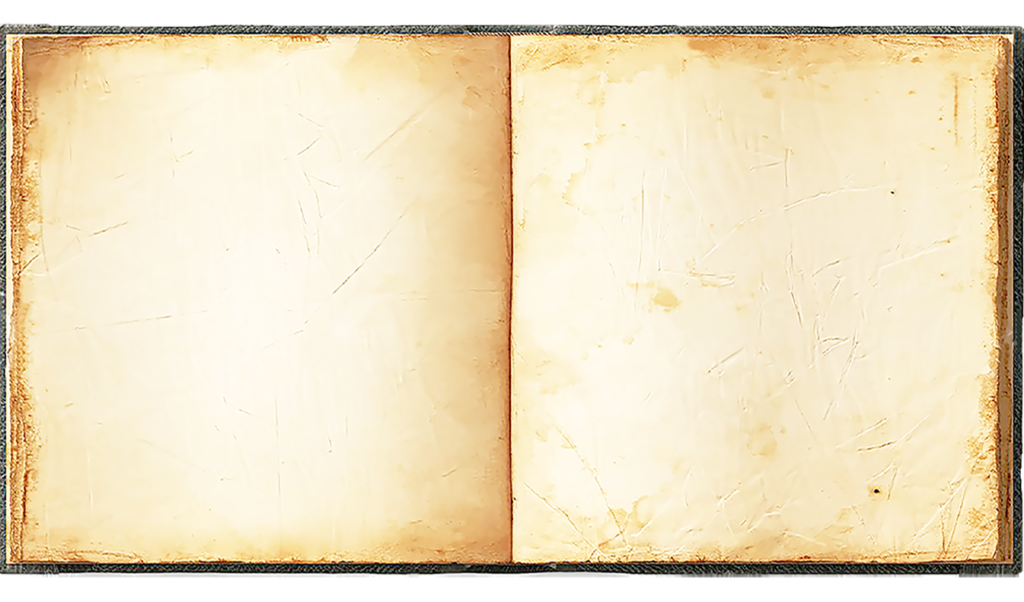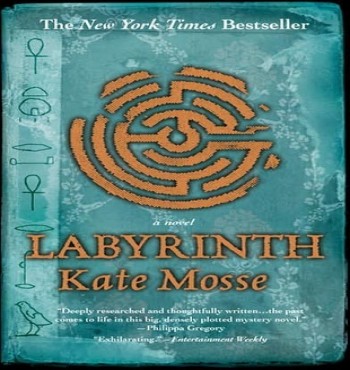CHAPTER 3
Intendant Pelletier was in one of the storerooms in the basements next to the kitchen, having just finished his weekly check of the grain and flour supplies. He was relieved to discover that none of the stock was mouldy.
Bertrand Pelletier had served Viscount Trencavel for more than eighteen years. It was early in the cold new year of 1191 that he had been summoned to return to his native Carcassonne, to take up the position of Intendant — steward — to the nine-year-old Raymond-Roger, heir to the Trencavel dominions. It was a message he had been waiting for and he had come willingly, bringing his pregnant French wife and two-year-old daughter with him. The cold and wet of Chartres had never been to his liking. What he had found was a boy old beyond his years, grieving for the loss of his parents and struggling to cope with the responsibility thrust on his young shoulders.
Bertrand had been with Viscount Trencavel ever since, first within the household of Raymond-Roger’s guardian, Bertrand of Saissac, then under the protection of the Count of Foix. When Raymond-Roger reached his majority and returned to the Château Comtal to take up his rightful place as Viscount of Carcassonne, Béziers and Albi, Pelletier had been at his side.
As steward, Pelletier was responsible for the smooth running of the household. He concerned himself also with administration, justice and the levying of taxes carried out on the Viscount’s behalf by the Consuls who ran the affairs of Carcassonne between them. More significantly, he was the Viscount’s acknowledged confidant, advisor and friend. His influence was second to none.
The Chateau Comtal was full of distinguished guests and more were arriving each day. The seigneurs of the most important châteaux within the Trencavel lands and their wives, as well as the most valiant, most celebrated chevaliers of the Midi. The finest minstrels and troubadours had been invited to the traditional Summer Joust to celebrate the Feast Day of Sant-Nasari at the end of July. Given the shadow of war that had been hanging over them for a year or more, the Viscount was determined that his guests should enjoy themselves and that it would be the most memorable tournament of his rule.
In his turn, Pelletier was determined nothing should be left to chance. He locked the door to the grain store with one of the many heavy keys he carried on a metal hoop around his waist and set off down the corridor.
‘The wine store next,’ he said to his manservant, François. ‘The last barrel was sour.’
Pelletier strode down the corridor, pausing to look on other rooms as they passed. The linen store smelled of lavender and thyme and was empty, as if it was waiting for someone to come and bring it back to life.
‘Are those tablecloths washed and ready for table?’
‘Oc, Messire.’
In the cellar opposite the wine store at the foot of the stairs, men were rolling sides of meat in the salting box. Some cuts were being strung up on the metal hooks that dangled from the ceiling. Others were stored in barrels for another day. In a corner, a man was threading mushrooms, garlic and onions on to strings and hanging them up to dry.
Everybody stopped what they were doing and fell silent when Pelletier walked in. A few of the younger servants got awkwardly to their feet. He said nothing, just gazed around, taking in the whole room with his sharp eyes, before nodding his approval and moving on.
Pelletier was unlocking the door to the wine store when he heard shouting and the sound of running footsteps on the floor above.
‘Find out what the matter is,’ he said irritably. ‘I can’t work with such a disturbance.’
‘Messire.’
François turned and ran quickly up the stairs to investigate.
Pelletier pushed open the heavy door and walked into the cool, dark cellars, breathing in the familiar smell of damp wood and the sour tang of spilt wine and ale. He walked slowly down the aisles until he had located the casks he was looking for. He took an earthenware cup from the tray that stood ready on the table, then loosened the bung. He was careful and slow, so as not to disturb the balance inside the cask.
A sound in the corridor outside made the hairs on the back of his neck stand on end. He put the cup down. Someone was calling his name. Alaïs. Something had happened.
Pelletier crossed the room and threw open the door.
Alaïs came hurtling down the stairs as if a pack of dogs was at her heels, with François hurrying behind.
At the sight of her father’s grizzled presence among the casks of wine and ale, she cried out with relief. She threw herself into his arms and buried her tear-stained face in his chest. The familiar, comforting smell of him made her want to cry again.
‘What in the name of Sant Foy is going on? What’s happened to you? Are you hurt? Tell me.’
She could hear the alarm in his voice. She pulled back a little and tried to speak, but the words were trapped in her throat and would not come. ‘Father, I — ’
His eyes were alive with questions as he took in at a glance her dishevelled appearance and stained clothes. He looked over her head to François for an explanation.
‘I found Dame Alaïs like this, Messire.’
‘And she said nothing about the cause of this . . . the reason for her distress?’
‘No, Messire. Only that she must be taken to you without delay.’
‘Very well. Leave us now. I’ll call if I need you.’
Alaïs heard the door shut. Then she felt the heavy touch of her father’s arm around her shoulder. He steered her over to the bench that ran along one side of the cellar and sat her down.
‘Come, Filha,’ he said in a softer voice. He reached down and pushed a strand of hair off her face. ‘This isn’t like you. Tell me what has happened.’
Alaïs made another attempt to get herself under control, hating the anxiety and concern she was causing him. She rubbed her smeared cheeks with the handkerchief he held out and dabbed her red eyes.
‘Drink this,’ he said, putting a cup of wine into her hands, before sitting down beside her. The ancient wood bowed and creaked under his weight. ‘François has gone. There’s nobody here but us. You must stop this and tell me what has happened to distress you so. Is it Guilhem? Has he done something to upset you? Because if he has, then I give you my word that I will — ’
‘It’s nothing to with Guilhem, Paire,’ Alaïs said quickly. ‘It’s nothing to do with anybody . . .’
She glanced up at him, then dropped her eyes again, embarrassed, humiliated to sit before him in such a state.
‘Then what?’ he persisted. ‘How can I help if you will not tell me what has happened?’
She swallowed hard, feeling guilty and shocked. She didn’t know how to start.
Pelletier took her hands in his. ‘You’re trembling, Alaïs.’ She could hear the concern and affection in his voice, the effort he was making to keep his fear in check. ‘And look at your clothes,’ he said, lifting the hem of her dress between his fingers. Wet. Covered with mud.’
Alaïs could see how tired he was, how worried. He was bewildered by her collapse, however hard he tried to hide it. The lines on his forehead were like furrows. How had she failed to notice before that his hair was now flecked with grey at the temples?
‘I have not known you be lost for words,’ he said, trying to coax her out of her silence. ‘You must tell me what this is about, è.’
His expression was so full of love and faith that it pierced her heart. ‘I fear you will be angry, Paire. Indeed, you have every right to be.’
His expression sharpened, but he kept his smile in place. ‘I promise I will not scold you, Alaïs. Now, come. Speak.’
‘Even if I tell you I went to the river?’
He hesitated, but his voice did not waver. ‘Not even then.’
The soonest spoken, the quickest mended.
Alaïs folded her hands in her lap. ‘This morning, just before dawn, I went down to the river, to a place I often go to gather plants.’
‘Alone?’
‘Alone, yes,’ she said, meeting his gaze. ‘I know I gave you my word, Paire, and I ask your forgiveness for my disobedience.’
‘On foot?’ She nodded and waited until he waved her to continue.
‘I was there for some time. I saw no one. As I was packing up my things to leave, I noticed what I thought was a bundle of clothes in the water, good quality cloth. In fact — ’ Alaïs broke off again, feeling the colour drain from her face. ‘In point of fact it was a body. A man, quite old. With dark, curly hair. At first, I thought he had drowned. I couldn’t see much. Then I saw his throat had been cut.’
His shoulders stiffened. ‘You didn’t touch the body?’
Alaïs shook her head. ‘No, but — ’ She dropped her eyes, embarrassed. ‘The shock of finding him, I’m afraid I lost my head and ran, leaving everything behind. My only thought was that I had to get away and tell you of what I had seen.’
He was frowning again. ‘And you saw no one?’
‘Not a soul. It was completely deserted. But once I saw the body, then I started to fear the men who had killed him might still be somewhere close.’ Her voice wavered. ‘I imagined I could feel their eyes on me, watching me. Or so I thought.’
‘So you are not harmed in any way,’ he said carefully, choosing his words with deliberation. ‘No one has interfered with you in any way? Hurt you?’
That she understood his meaning was clear from the way her colour rose quickly in her cheeks.
‘No ill has come to me other than my pride being damaged and . . . the loss of your goodwill.’
She watched the relief wash over her father’s face. He smiled and, for the first time since the conversation had started, it reached his eyes.
‘Well,’ he said, breathing out slowly. ‘Overlooking, for the time being, your recklessness, Alaïs, the fact you disobeyed me . . . leaving that aside, you did the right thing by telling me of this.’ He reached out and took her hands, his giant clasp encompassing her small, thin fingers. His skin felt like tanned leather.
Alaïs smiled, grateful for the reprieve. ‘I am sorry, Paire. I meant to keep my promise, it’s just that — ’
He waved the apology away. ‘We will say no more about it. As for the unfortunate man, there’s nothing to be done. The thieves will be long gone. They’re hardly likely to stay around and risk discovery.’
Alaïs frowned. Her father’s comments had stirred something that had been lurking beneath the surface of her mind. She closed her eyes. Pictured herself standing in the chill water, transfixed by the body.
‘That’s the odd thing, father,’ she said slowly. ‘I don’t think they can have been bandits. They didn’t take his surcoat, which was beautiful and looked valuable. And he was still wearing his jewellery. Gold chains around his wrists, rings. Thieves would have stripped the body bare.’
‘You told me you did not touch the body,’ he said sharply.
‘Nor did I. But I could see his hands under the water, that’s all. Jewels. So many rings, father. A gold bracelet made from interlinking chains. Another around his neck. Why would they leave such things?’
Alaïs broke off, as she remembered the man’s bloated, ghostly hands reaching out to touch her and, where his thumb should have been, blood and shards of white bone. Her head started to spin. Leaning back against the damp, cold wall, Alaïs made herself concentrate on the hard wood of the bench beneath her and the sour smell of the casks in her nose, until the dizziness faded.
‘There was no blood,’ she added. ‘An open wound, red like a piece of meat.’ She swallowed hard. ‘His thumb was missing, it was — ’
‘Missing?’ he said sharply. What do you mean, missing?’
Alaïs glanced up in surprise at the shift of tone. ‘His thumb had been cut off. Sliced from the bone.’
‘Which hand, Alaïs?’ he said. Now there was no hiding the urgency in his voice. ‘Think. It’s important.’
‘I’m not — ’
He hardly seemed to hear. Which hand?’ he insisted.
‘His left hand, the left, I’m sure of it. It was the side closest to me. He was facing upstream.’
Pelletier strode across the room, bellowing for François, and threw open the door. Alaïs hurled herself to her feet too, shaken by her father’s desperate mood and bewildered as to what was going on.
What is it? Tell me, I beseech you. Why does it matter if it was his left or his right hand?’
‘Prepare horses straight away, François. My bay gelding, Dame Alaïs’ grey mare and a mount for you.’
François’s expression was as impassive as ever. ‘Very good, Messire. Are we going far?’
‘Only to the river.’ He gestured him to be gone. ‘Quick, man. And fetch my sword and a clean cloak for Dame Alaïs. We’ll meet you at the well.’
As soon as François was out of earshot, Alaïs rushed to her father. He refused to meet her gaze. Instead, he walked back to the casks and, with a shaking hand, poured himself some wine. The thick, red liquid slopped over the side of the earthenware bowl and splashed all over the table, staining the wood.
‘Paire,’ she pleaded. ‘Tell me what this is about. Why do you have to go to the river? Surely, it cannot be a matter for you. Let François go. I can tell him where.’
‘You don’t understand.’
‘Then tell me, so I can understand. You can trust me.’
‘I must see the body for myself. Find out if — ’
‘Find out what?’ Alaïs said quickly.
‘No, no,’ he was saying, shaking his grizzled head from side to side. ‘This is not for you to . . .’ Pelletier’s voice trailed off.
‘But — ’
Pelletier held up his hand, suddenly in control of his emotions again. ‘No more, Alaïs. You must be guided by me. I would that I could spare you this, but I cannot. I have no choice.’ He thrust the cup towards her. ‘Drink this. It will fortify you, give you courage.’
‘I’m not afraid,’ she protested, offended he thought her reluctance cowardice. ‘I do not fear to look on the dead. It was shock that affected me so before.’ She hesitated. ‘But, I beseech you, Messire, to tell me why — ’
Pelletier turned on her. ‘Enough, no more,’ he shouted.
Alaïs stepped back as if he had struck her.
‘Forgive me,’ he said immediately. ‘I am not myself.’ He reached out and touched her cheek. ‘No man could ask for a more loyal, a more steadfast daughter.’
‘Then why will you not confide in me?’
He hesitated and, for a moment, Alaïs thought she had persuaded him to speak. Then the same, shuttered look fell down over his face again.
‘All you have to do is show me,’ he said in a hollow voice. ‘The rest is in my hands.’
The bells of Sant-Nasari were ringing for Tierce as they rode out of the West Gate of the Château Comtal.
Her father rode in front, with Alaïs following behind with François. She felt wretched, both guilty that her actions had precipitated this strange change in her father and frustrated that she did not understand.
They picked their way along the narrow, dry dirt track that zig-zagged sharply down the hill below the Cite walls, doubling back on itself over and again. When they reached the flat, they broke into a canter.
They followed the course of the river upstream. An unforgiving sun beat down upon their backs as they rode into the marshes. Swarms of midges and black swamp flies hovered above the rivulets and puddles of torpid water. The horses stamped their hooves and switched their tails, in vain trying to stop their thin summer coats being pierced by the myriad biting insects.
Alaïs could see a group of women washing clothes in the shaded shallows on the other bank of the river Aude, standing half in and half out of the water as they beat the material on flat grey stones. There was a monotonous rumble of wheels over the single wooden bridge that linked the marshes and villages of the north to Carcassonne and its suburbs. Others waded across the river at its lowest point, a steady stream of peasants, farmers and merchants. Some were carrying children on their shoulders, some driving herds of goats or mules, all heading for the market in the main square.
They rode in silence. Once they moved from open ground into the shadow of the marsh willows, she found herself drifting away into her own thoughts. Calmed by the familiar motion of her horse beneath her, the singing of the birds and the endless chattering of the cicadas in the reeds, for a while Alaïs almost forgot the purpose of their expedition.
Her apprehension returned when they reached the outskirts of the woods. Falling into single file, they threaded their way through the trees. Her father turned, briefly, and smiled at her. Alaïs was grateful for it. She was nervous now, alert, listening for the slightest sign of trouble. The marsh willows seemed to tower with malice over her head and she imagined eyes in the dark shadows, watching them pass, waiting. Every rustle in the undergrowth, every beat of a bird’s wing made her heart race.
Alaïs hardly knew what she had expected, but when they arrived at the glade, everything was quiet and peaceful. Her panièr was standing under the trees where she’d left it, the tips of the plants poking out of the strips of linen. She dismounted and handed her reins to François, then walked towards the water. Her tools lay undisturbed, where she’d left them.
Alaïs jumped at the touch of her father’s hand on her elbow.
‘Show me,’ he said.
Without a word, she led her father along the bank until she reached the spot. At first, she could see nothing and, for a brief moment, she wondered if it had been a bad dream. But there, floating in the water among the reeds a little further upstream than before, was the body.
She pointed. ‘There. By the knitbone.’
To her astonishment, rather than summoning François, her father threw off his cloak and waded into the river.
‘Stay there,’ he called over his shoulder.
Alaïs sat down on the bank and drew her knees up to her chin and watched as her father ploughed into the shallows, paying no attention to the water splashing up over the tops of his boots. When he reached the body, he stopped and drew his sword. He hesitated for a moment, as if preparing himself for the worst, then, with the tip of the blade, Pelletier carefully lifted the man’s left arm up out of the water. The mutilated hand, bloated and blue, lay balanced for a moment, then slithered down the silver flat of the blade towards the hilt, as if alive. Then it slipped back into the river with a dull splash.
He sheathed his sword, bent forward and rolled the corpse over. The body bobbed violently in the water, the head lolling heavily as if it was trying to detach itself from the neck.
Alaïs quickly turned away. She did not want to see the imprint of death on the unknown man’s face.
Her father’s mood was very different as they rode back towards Carcassona. He was evidently relieved, as if a weight had been lifted from his shoulders. He exchanged light-hearted remarks with François and, whenever she caught his eye, he smiled affectionately.
Despite her exhaustion and frustration at not understanding the significance of what had taken place, Alaïs was filled with a sense of well-being too. It felt like old times, riding out with her father, when there had been time enough to enjoy one another’s company.
As they turned away from the river and headed back up towards the Château, her curiosity finally got the better of her. Alaïs plucked up the courage to ask her father the question that had been on the tip of her tongue ever since they set out.
‘Did you discover what you needed to know, Paire?’
‘I did.’
Alaïs waited, until it was clear that she would have to draw an explanation out of him word by word.
‘It wasn’t him, though, was it?’
Her father glanced sharply at her.
She pressed on. ‘You believed, from my description, that you might know this man? Which is why you wanted to see the body for yourself.’ Alaïs could tell from the gleam in his eyes that she was right.
‘I thought he might be known to me,’ he said in the end. ‘From my days in Chartres. A man dear to me.’
‘But he was a Jew.’
Pelletier raised his eyebrows. ‘Yes, indeed.’
‘A Jew,’ she repeated. ‘Yet a friend?’
Silence. Alaïs persisted. ‘But it wasn’t him, this friend?’
This time, Pelletier smiled. ‘It was not.’
‘Then who?’
‘I don’t know.’
Alaïs was silent for a moment. She was sure her father had never mentioned such a friend. He was a good man, a tolerant man, but even so, if he had talked of such a friend in Chartres, a Jew, she would have remembered. Knowing well enough there was no point pursuing a subject against her father’s wishes, she tried a different approach.
‘It wasn’t robbery? I was right about that.’
Her father seemed happy to answer this. ‘No. They intended to kill him. The wound was too deep, too deliberate. Besides, they left almost everything of value on the body.’
‘Almost everything?’ But Pelletier said nothing. ‘They could have been interrupted?’ she suggested, risking pushing a little further.
‘I think not.’
‘Or perhaps they were seeking something particular?’
‘No more, Alaïs. This is neither the time nor the place.’ She opened her mouth, unwilling to let the matter drop, then shut it again. The discussion was clearly over. She would learn nothing more. Far better to wait until he was minded to talk. They rode the rest of the way in silence.
When they were back in sight of the Western Gate, François went on ahead.
‘It would be advisable not to mention our expedition this morning to anyone,’ he said quickly.
‘Not even Guilhem?’
‘I cannot think your husband would be pleased to learn you had gone unaccompanied to the river,’ he said dryly. ‘Rumours spread so quickly. You should rest and try to put the whole unpleasant incident out of your mind.’
Alaïs met his gaze with innocent eyes. ‘Of course. As you wish. I give you my word, Paire. I will speak of this to no one but you.’
Pelletier hesitated, as if he suspected she was playing a trick on him, then smiled. ‘You are an obedient daughter, Alaïs. I can trust you, I know.’
Despite herself, Alaïs blushed.





































